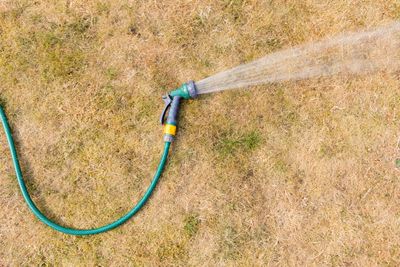Can Grass Be Overwatered?
Many gardeners don’t realize that water can be both good and bad for their lawns. Can grass be overwatered? Yes, it can, and the consequences for that smooth carpet of green are not pleasant. Overwatered grass is not just the result of too-eager homeowners. Water on the lawn can come from humidity and showers, as well as sprinkler hoses. And hot, wet summers are not an occasional happenstance in some locales.
Signs of Overwatering the Lawn
A little investigation can tell you if you are overwatering the lawn. If your grass squishes a few hours after watering, that’s a sign. Dying patches of grass can also signal overwatering issues. Other symptoms include an abundance of weeds like crabgrass and nutsedge, thatch, and fungal growth like mushrooms. Runoff after irrigation is another sign, as well as yellowing grass.
Fixing an Overwatered Lawn
Once you realize that you have overwatered the lawn, you need to take action. How to repair an overwatered lawn? The first steps are evaluating the overwatering issue. How much water does the grass on your lawn require? How much does it get from rain? How much is your sprinkling system providing? These types of questions are essential for cutting back irrigation and fixing an overwatered lawn. You’re better off watering thoroughly but only occasionally than sticking to a rigid schedule. Finally, consider lawn treatment services if your lawn has brown or yellow patches and other issues that don’t go away when you reduce watering. Fixing an overwatered lawn can include aerating and de-thatching your yard. Aerating encourages healthier grass and takes care of compacted soil. All you have to do is to run a power core aerator over the lawn to pull up plugs of dirt. This opens up areas in the under-soil to stimulate new root growth. It also slits open the soil’s surface and allows nutrients and water to pass through to soil underlayers.
